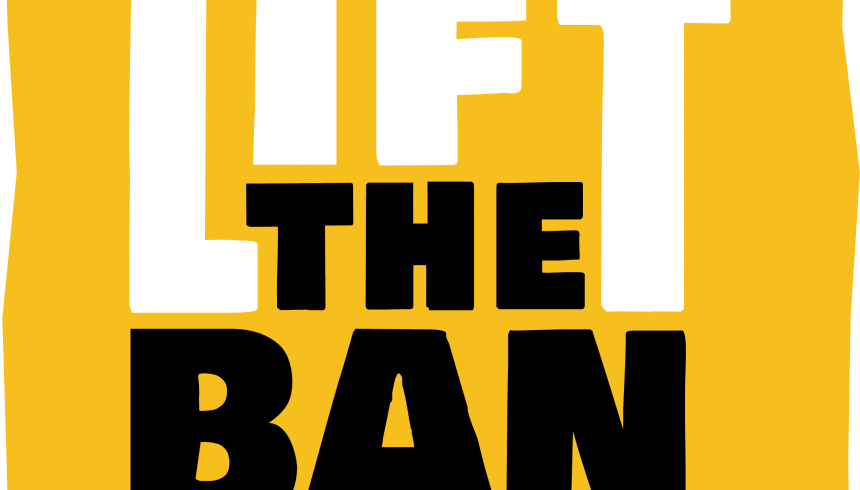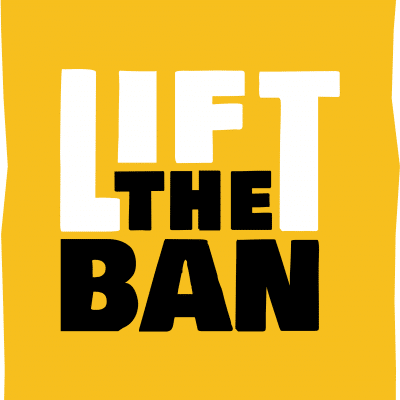The Lift the Ban campaign has today launched their report: “Lift the Ban – why people seeking asylum should have the right to work”, calling for greater access to the labour market for those waiting to hear about an asylum claim.
Everyone in the asylum system is currently banned from working – regardless of when an asylum claim was made, or how long they have been caught up in a prolonged and confusing asylum process. There are some exceptions – but they are so few and far between, that they are pretty much irrelevant.
What is the campaign calling for?
The campaign calls for people to be able to work:
- – if they have been waiting for more than six months to hear about the outcome of an initial asylum claim or a fresh asylum claim
Why?: initial asylum claims are supposed to be decided in six months, but very often aren’t. The mental toll that people face through not being able to work, and provide for themselves and their family is devastating.
- – In any area of work
Why?: If you’ve been waiting twelve months you may apply for permission to work in jobs on the absurdly restrictive “shortage occupation list” – basically, they may apply for permission to seek work as a classical ballet dancer, nuclear medical practitioner, or several other bizarrely niche professions. This of course amounts to a total ban on work for the vast majority of those seeking asylum, as it would for the vast majority of people, so the coalition wants people seeking asylum to be unconstrained by the list.
What is Lift the Ban?
A diverse coalition of 88 organisations – and growing – calling on the government to give those seeking asylum the right to work.
Those with a pending asylum claim are typically given asylum support of just £37.75 a week, provided they don’t do something to breach the conditions of their support: like stay at a friend’s house for a week. This is barely enough to make ends meet. And it certainly isn’t enough to save anything at all, which means you can’t buy any of those things that you only have to buy occasionally, but you really cannot do without – like a winter coat. Low levels of asylum support also make it extremely difficult for people to integrate and participate in society. Most social activities cost money. Even travelling to a church or a mosque, or a charity at which you volunteer, costs money. This is the kind of poverty that fosters social exclusion.
The ban on work interferes with the asylum system itself, making it more difficult for people to get the justice they desperately need. Gruelling poverty is a difficult position from which to navigate the labyrinth asylum system. It makes it hard for people to perform the practical tasks necessary to pursuing an asylum claim, including keeping in regular contact with their solicitor and gathering evidence, often from another continent, to support their claim.
The ban on work…is an integral part of an asylum system that reads those seeking safety with suspicion, only as threats and not as full and complex persons.
But work isn’t only about money – it is, in itself, also about dignity and participation, about how we relate to each other. I recently spoke to people who have been in the asylum system about this. One told me that work was about respect, and his not being able to work impacted how others saw him. Another told me how he wanted to be able to contribute to his family. These explanations reminded me of John Paul II’s Laborem Exercens; work, he says is a “basic dimension of human existence” and “the mark of a person operating within a community of persons”. It links us to others as people valued for our own unique contributions. The ban on work is thus profoundly dehumanising and marginalising. It is bad for those seeking sanctuary and the communities of which they are a part. It is an integral part of an asylum system that reads those seeking safety with suspicion, only as threats and not as full and complex persons. The labour market, we are told, needs to be protected from those who desperately hope for a chance to rebuild their lives here, and would love to contribute to the communities in which they are seeking to do so.
At JRS UK, we accompany people who have been badly let down by the asylum system. They came here for protection, but have been refused asylum, and even the small amount of support people receive when waiting to hear about their claims is cut off. Many of those we work with will eventually be recognised as refugees, but for now they are left destitute, and pushed even further to the margins. It is government policy to make them unwelcome, to dehumanise them by creating a hostile, or compliance, environment. If the government were to accept Lift the Ban’s recommendations, this wouldn’t immediately change their plight – but it would take an important step towards humanising the brutal asylum process that has left those we accompany where they are. It would lessen the damage that system inflicts on those who are forced to confront it in order to get the protection they need. And that is certainly a step worth taking.
Learn More: Read our recent report ‘Out in the Cold’ about the homelessness faced by destitute refugees and those seeking asylum in Greater London.



